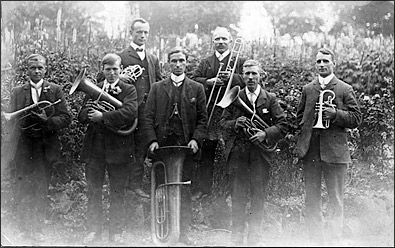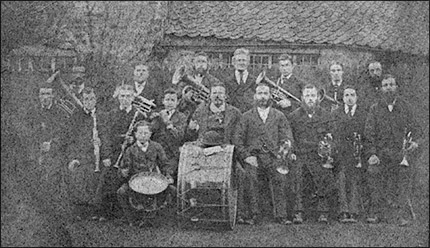|
||||
|
||||
|
Like football, brass bands were a British creation. Such bands have their roots in the industrial revolution at the turn of the nineteenth century. Though it is commonly believed that brass bands are a phenomenon of the North of England, and the Collieries and Mining Community in particular, they did in fact flourish in any town of city where there was organised industry. The main difference between military and brass bands is that brass bands use exclusively brass instruments, whereas military bands might have flutes and reed instruments. For those wondering what the difference between a silver and brass band is, the answer is that all the instruments are made of brass, but some instruments were developed with a thin coating of silver. This coating seemed to improved the tone, and Silver Bands tend to refer to bands which originally used that type of instrument. Bands offered a regular recreational pursuit at a time when there were few alternatives to the hard reality of factory and agricultural labour. They were also an expression of identity - a factory, a colliery, a church, a club, a village, a community. The roots are preserved in many of the names: Grimethorpe Colliery Band, the Black Dyke Mills Band, the Salvation Army Band, the Town Band or the Temperance Band. The music which bands played for the first hundred years or so of their existence was almost exclusively based on arrangements of classical works of the day, usually opera- or symphony-related. Original compositions for bands didn't come into vogue until early in the twentieth century. The principal band in Burton in the early 1900s was the Britannia Band, re-named the Britannia Silver Prize Band after winning a number of contests in 1905. Though the club in the High Street (opposite what is now the Library) has been called "The Band Club" since it was formed in 1901, the band based there was the Britannia Band.
|
||||

